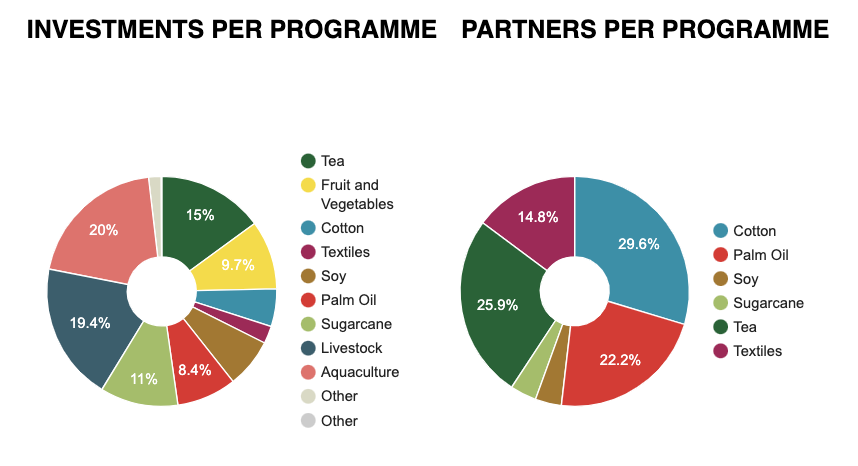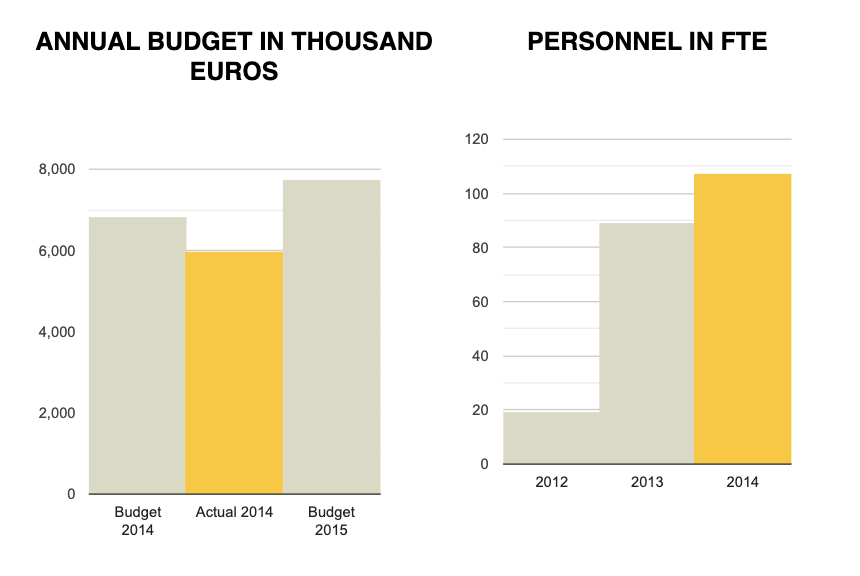REGIONAL COMMODITY PROGRAMMES
Four countries – India, China, Indonesia and Malaysia – produce and consume 80% of the world’s supply of palm oil. In 2013 Solidaridad SSEA took over the management of the palm oil programme in the region. Since then the REC has shifted its main focus from Roundtable certification to supporting smallholder palm oil producers and sustainably transforming Asian palm oil markets.

The main issues facing Indian smallholder soy farmers are weak infrastructure, illiteracy, lack of organization and resources, managing small land holdings, and water scarcity. Solidaridad has been working with these farmers to support them in adopting new technologies.

Solidaridad has played a pivotal role in implementing the Trustea programme, which aims to establish sustainable production in the Indian tea market, and the Teh Lestari scheme in Indonesia. Our partners in India are the Sustainable Trade Initiative (IDH), Hindustan Unilever Ltd and Tata Global Beverages.

Solidaridad has joined forces with the International Finance Corporation (IFC), Hindustan Unilever Foundation (HUF) and four Indian milling companies in a joint programme that aims to improve farm productivity and smallholders’ income. The programme helps farmers adopt water efficient agronomical practices while also building on their financial and farm input management skills.

In 2014 the textiles programme for REC SSEA underwent a process of consolidation and transition, the effect of which was to steer our strategy towards a more pragmatic approach with regard to new avenues of work.

For agriculture to endure, farmers need the capacity to sustain the land they live on as well as themselves. That’s why Solidaridad works with supply chain actors in Bangladesh to help them increase productivity. Investments by Solidaridad and private sector partners help farmers progress from day-to-day subsistence towards a sustainable business-oriented future.

In 2014, the textiles programme for REC SSEA underwent a process of consolidation and transition, which had a profound influence on the strategy by encouraging a more pragmatic approach with regards to new programmes.

EXTERNAL DEVELOPMENTS
In 2014 India, Indonesia and Bangladesh, the three most important countries in the region, all elected new governments which are all enthusiastic about development and competition.
India’s new Prime Minister, Narendra Modi, declared it a priority to conserve water (“per drop, more crop”) and appealed to farmers and scientists to work towards increasing crop productivity without compromising on quality. Indonesia has focused on food sustainability, especially rice production, followed by corn, sugar and soybean. This is very promising, as we have plans for a comprehensive intervention in soy and sugar in the country. In Bangladesh, the government has prioritized support for the rural economy and building social safety nets for the rural poor. In the ready-made garments sector, wages have increased by 226% over the last five years.
There are also new opportunities for palm oil producers in India. India’s palm oil consumption, as a percentage of global consumption, increased from 13% in 2007 to 15% in 2011-12. This growth in consumption is outpacing the global rate and hence India plays a vital role in driving the production of palm oil globally. We are exploring opportunities to establish a sustainable palm oil programme in India.

RESULTS AND PARTNERSHIPS
The aim of maximizing yields, saving water and using land in a smart way has led us to develop a large number of water projects in India. We are coordinating these closely with the Dutch and Indian governments. In 2014, there was increasing potential for raising funds from Asian companies. More Asian multinational corporations are also setting sustainability targets. Solidaridad is closely cooperating with Olam, EID Parry, Rajshree Sugar, DSCL and Ruchi Soy, to name just the largest partners. We have has also signed Memoranda of Understanding with major tea industry associations such as Indian Tea Association (ITA) for Northern India and United Planters Association of Southern India (UPASI) for Southern India on sustainable, water-efficient tea production.
We launched a multi-stakeholder platform to promote the accountability and credibility of sustainable soy production in India. In Indonesia, we partnered with state-owned PTPN-III and Business Watch to promote the sustainable transformation of palm-oil production in Indonesia. Together with IDH we are partnering with the Indian tea board and Hindustan Unilever Limited as well as Tata Global Beverages to help move the Indian tea sector towards sustainable tea based on the Trustea Standard.

DONORS AND ORGANIZATIONS
Two of the biggest food and beverage brands in India (and worldwide), Hindustan Unilever Limited and Tata Global Beverages Limited are engaged in a four-year partnership with Solidaridad and IDH to extend sustainable tea production in India. The locally developed sustainability standard “Trustea” is being rolled out and similar standards are being introduced in Bangladesh, Nepal and Indonesia.
Hindustan Unilever Foundation helped Solidaridad’s Farmer Support Programme to achieve water efficiency through its “Water for Public Good” programme.
Five of India’s largest sugar companies (EID Parry, NSL sugar, DSCL group, Rajshree Sugar and Olam International), are collaborating with Solidaridad on building a sustainable sugarcane supply chain involving 200,000 small-scale sugar farmers. The International Finance Corporation is a co-funder and partner in this programme.
Ruchi Soy, part of the Ruchi Group of Industries, is purchasing RTRS certified soy and is also a partner in Hindustan Unilever Foundation’s water-saving initiative. PT Sariwangi AEA supported Solidaridad’s tea programme by procuring Lestari-verified tea in Indonesia. The clothes manufacturer BESTSELLER provided matching funding for a project-specific partnership set up to address safety concerns in the Bangladeshi textile Industry.
Several companies partnered with SaFaL in Bangladesh, including the Bangladesh Frozen Foods Exporters Association, which supported Solidariad’s Sea Food Trade Intelligence Portal (STIP) in establishing connections with producers to improve the quality and marketing of their end products.
